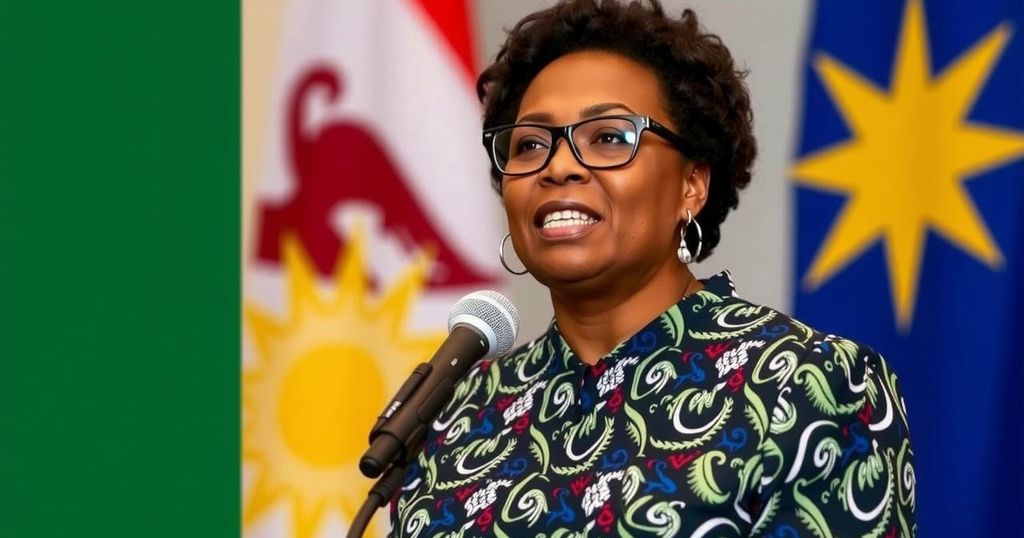Namibia has elected its first female leader, Vice President Netumbo Nandi-Ndaitwah, who won 57% of the votes in the recent presidential election. Despite SWAPO’s ongoing dominance, opposition parties have criticized the electoral process, citing technical issues and irregularities. Nandi-Ndaitwah’s victory is significant, as she aims to lead the country following a long history of male leadership. The opposition has pledged to challenge the election results in court.
Namibia has made history by electing its first female leader, Vice President Netumbo Nandi-Ndaitwah, who triumphed in the recent presidential election, securing 57% of the vote. This development marks a significant milestone for the nation and the ruling SWAPO party, which has held power since the country gained independence from apartheid South Africa in 1990. Despite concerns raised by opposition parties regarding electoral irregularities, such as technical issues and ballot shortages, SWAPO successfully maintained its parliamentary majority.
Vice President Nandi-Ndaitwah, age 72, has a longstanding background in Namibia’s independence movement, being an active member during the 1970s. Promoted to vice president earlier this year following the passing of President Hage Geingob, she is now set to become the fifth president of Namibia post-independence. Following the election results announcement, SWAPO heralded her victory with a message of determination: “SWAPO Wins. Netumbo Wins. Namibia Wins. Now Hard Work.”
While the SWAPO party celebrated its win, opposition figures have voiced substantial criticism of the electoral process. They contend that the election was compromised by multiple technical problems, hindering many Namibians from casting their votes. The Independent Patriots for Change, led by Panduleni Itula, placed second with 25% of the vote and has pledged to challenge the results in court, arguing that the three-day extension of voting was unconstitutional.
Namibia is recognized for its democratic stability and is one of Africa’s most sparsely populated countries, boasting a population of merely three million residents across an expanse larger than Germany. The SWAPO party’s success is noteworthy as it contrasts with neighboring nations where long-standing parties have recently lost their majorities amidst a regional push for change.
The recent presidential election in Namibia has ushered in a historic wave of change by electing the nation’s first female leader, Netumbo Nandi-Ndaitwah, from the SWAPO party. Having held power for 34 years since independence, SWAPO faced criticism from opposition parties who alleged electoral malpractices during the recent voting process. The election’s integrity has been a focal point of contention, highlighting Namibia’s political landscape as it balances tradition with the demands for reform, especially in light of regional shifts toward new political trends. Nandi-Ndaitwah’s rise to prominence underscores a broader movement within African politics that seeks to amplify female representation in leadership roles. The opposition’s challenge to the election results may further reshape the political dialogue in Namibia as it continues to navigate its democratic process while ensuring equal opportunities for all citizens. As the nation reflects on its recent electoral experience, the outcome will likely influence Namibia’s future trajectory in governance, democratic practices, and societal expectations from its leadership.
In conclusion, Namibia’s historic election of Vice President Netumbo Nandi-Ndaitwah as the first female leader reflects both an evolution in leadership and a potential turning point in regional politics. Despite the SWAPO party’s continued dominance, the backlash from opposition parties surrounding the electoral process raises critical questions about democratic practices within the nation. Nandi-Ndaitwah’s administration will be observed closely as it addresses both governance challenges and the call for greater representation in political spaces.
Original Source: abcnews.go.com






